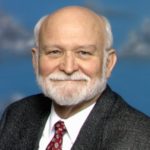Home › Forums › VOICE OF PROPHECY – Kingdom of God Prophetic Words › The Great Reformation and the Disenchantment of the World – By JD KING
- This topic has 0 replies, 1 voice, and was last updated 6 years, 6 months ago by
 Ron McGatlin.
Ron McGatlin.
-
AuthorPosts
-
November 1, 2017 at 11:05 am #7024
 Ron McGatlinKeymaster
Ron McGatlinKeymasterThe Great Reformation and the Disenchantment of the World Posted: 31 Oct 2017 02:34 PM PDT
Throughout the late medieval period, the turbulent winds of change blew across Europe. With philosophical reappraisals and the reacquisition of forgotten manuscripts, a “new way of thinking called scholasticism arose.”[1] Established universities set out to bring a corrective to “medieval otherworldliness.”[2]
With an impulse to quell the untethered superstitions of the dark ages, educated clerics questioned not only ideas and practices, but also religious authority. A fierce critique caught fire, ultimately sparking a protest movement known as the Protestant Reformation.
On October 31, 1517, a sharp-tongued Augustinian monk named Martin Luther (1483–1546) nailed his “95 Thesis” on the door of the Wittenberg church. In his fierce repudiation, Luther was willing to dismantle the complex cathedrals of Catholicism.
Legitimate concerns had to be addressed. However, some of Luther’s correctives may have been overextended.
With an emphasis on rationalism and the natural order, the Protestants insisted religion should be identified with the “noble” aspects of human existence. Therefore, “human material concerns and pleasures, human bodies and extreme emotions came to be defined as not proper to religion or religiosity.”[3]
The Reformers asserted that there was an “ontological difference between the physical and spiritual realms.”[4] They believed that “matter is not just incapable of bridging the gap between heaven and earth, but actually an obstacle.”[5]
Ulrich Zwingli (1484-1531), a colleague of Luther, argued that much of human existence was “carnal” and stood in “enmity against God.” Convinced that “matter and spirit were as incapable of mixing as fire and water,”[6] Zwingli declared, “The more you give to the material, the more you take away from the spiritual.”[7]
The Protestant realignment of the natural and supernatural that had all sorts of unintended consequences. Jan-Olav Henriksen, Karl Olav Sandnes suggest that among other things, “This move in turn probably led to a marginalization of popular healing practices and to the deterioration of a religious language that could interpret such practices in an affirmative way.”[8]
Many contemporary leaders readily embrace the outlook of Luther and the Reformers. Major studies continue to reiterate “earlier tendencies in Luther, Calvin, and other Protestant Reformers to downplay religious healing and marginalize miracles.[9]
Reflecting on what happened October 17, 1517, Luther poignantly declared, “We have become the spectacle of the world.”[10] He had no idea how prophetic this utterance would be. Perhaps what took place 500 years ago today, contributed to the disenchantment of the world.
[1] Louis Roy, “Medieval Latin Scholasticism: Some Comparative Features,” in Scholasticism: Cross-Cultural and Comparative Perspectives, ed. José Ignacio Caezón (Albany, New York: State University of New York Press, 1998), 22.
[2] Morton Kelsey, Tongue Speaking: An Experiment in Spiritual Experience (New York, Doubleday, 1964), 184.
[3] Meredith B. McGuire, Lived Religion: Faith and Practice in Everyday Life (New York Oxford University Press 2008), 41.
[4]. Carlos Eire, “Redefining the Sacred and the Supernatural: How Protestant Reformation Really Did Disenchant the World,” Protestantism After 500 Years, eds. Thomas Albert Howard and Mark A. Noll (New York: Oxford University Press, 2016), 77-78.
[5]. Ibid., 79.
[6]. Ibid.
[7]. Huldreich Zwinglis, Sämtliche Werke, Volume 8 (Berlin: Schwetschke, 1905-1990), 194-195.
[8]. Jan-Olav Henriksen, Karl Olav Sandnes, Jesus as Healer: A Gospel for the Body (Grand Rapids, Michigan: William B. Eerdmans Publishing Company, 2016), 165.
[9]. Amanda Porterfield, Healing in the History of Christianity (New York: Oxford University, 2005). 25.
[10] Martin Luther quoted in Lewis W. Spitz, “Introduction,” in The Protestant Reformation, ed. Lewis W. Spitz (Lexington, Massachusetts: Ginn Press, 1987), 1.
You are subscribed to email updates from J.D. King Blog.
To stop receiving these emails, you may unsubscribe now.Email delivery powered by Google Google Inc., 1600 Amphitheatre Parkway, Mountain View, CA 94043, United States -
AuthorPosts
- You must be logged in to reply to this topic.

